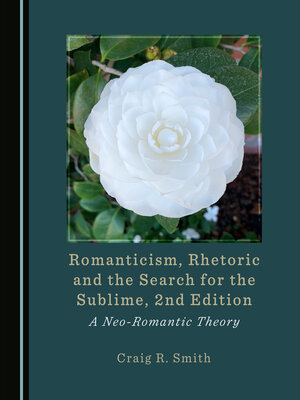Romanticism, Rhetoric and the Search for the Sublime
ebook ∣ A Neo-Romantic Theory
By Craig R. Smith

Sign up to save your library
With an OverDrive account, you can save your favorite libraries for at-a-glance information about availability. Find out more about OverDrive accounts.
Find this title in Libby, the library reading app by OverDrive.



Search for a digital library with this title
Title found at these libraries:
| Library Name | Distance |
|---|---|
| Loading... |
Relying on the author's established expertise in rhetoric and political communication, this book re-contextualizes Romantic rhetorical theory from the late 18th and early 19th centuries to provide a foundation for a Neo-Romantic rhetorical theory for our own time. In the process, it uses a unique methodology to correct misconceptions about the rhetorical theories of many writers. Using a dialectical approach, the early chapters trace Romanticism through its opposition to the industrial revolution and the Enlightenment, back through Humanism and its opposition to Scholasticism, to its roots in St. Augustine's writing. These chapters include a revisionist analysis of the church's treatment of Galileo in the course of showing how difficult it was for scientific study to be accepted in Scholastic circles. The study goes on to argue that Jean-Jacques Rousseau, David Hume, and Edmund Burke were bridge figures to the Romantic Era. This move throws new light on exemplary painters, composers, writers and orators of the Romantic Era, who are examined in chapters eight and nine. Chapter ten focuses on Percy Bysshe Shelley and his development of the rhetorical poem, and thereby provides a new genre in the Romantic catalogue. Chapter Eleven turns to the Romantic rhetorical theories of Hugh Blair and Thomas De Quincey to empower those seeking to save the environment. The concluding chapter then synthesizes their theories with relevant contemporary rhetorical theories thereby constructing a Neo-Romantic theory for our own time. In the process, the book links the Romantics' love of nature to the current environmental crisis.







